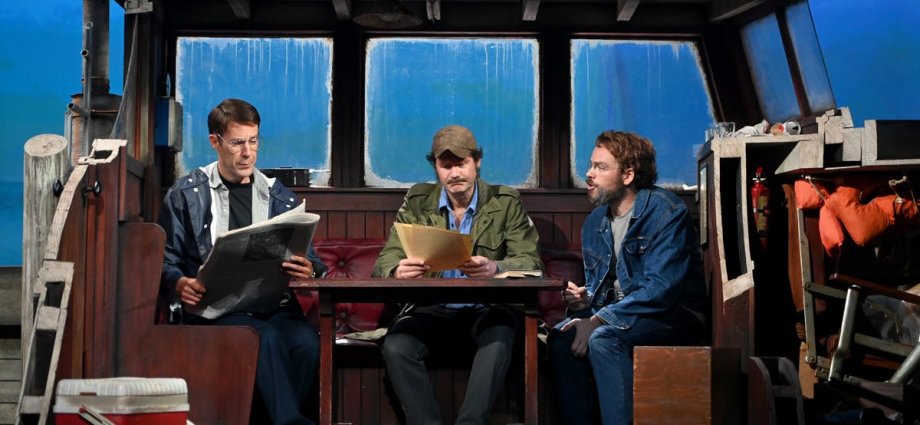Review at a glance
Co-written by Shaw himself alongside Joseph Nixon, the action is confined to the inside of the boat on which Shaw, Roy Scheider and Richard Dreyfuss shot the film’s latter scenes. The three actors are bored, bickering and boozing, as they wonder whether the finished product will really be worth the long, arduous shoot. “It’s the witless offspring of The Enemy of the People and Moby Dick!” declares Shaw, a brilliant stand-outline in a script full of them. Meanwhile, a tension emerges between Shaw and young co-star Dreyfuss – a feud that has gone down in film history. It feels endearingly timeless, that wary, antagonistic, grudgingly respectful suspicion between different generations.
Director Guy Masterson draws compelling, detailed performances out of his impeccable cast of three. As his father, Shaw shows us a man who lives close to the edge, jaded by his fading idealism about how art might be able to change the world and grappling with alcoholism. Liam Murray Scott gives us Dreyfuss’s nervy self-doubt, fuelled by a hunger to prove himself to be a serious artist amid the enticing, shallower prospect of fame. Scheider is the straight man, playing peacemaker, but Demetri Goritsas finds comedy in his zen-like absorption for absorbing endless numbers of boring facts. (“Roy, you’re talking about roads again,” says Shaw at one point.)
Do you need to have seen the film to care? Not at all – I’m no Jaws aficionado, and I was hooked. Across the play’s 90-minute running time, the men discuss art, money, fame, masculinity and fatherhood. It’s both a love letter to film-making and a searching study of how to live a good life amid all of its difficulties. In one scene, the theatre becomes particularly still. Shaw – the character in the play – is talking about losing his father to suicide when he was a 12-year-old boy. He wonders if his father would be proud of him, or think he was wasting his life; here, written and spoken by Shaw’s son, there’s an extra spine-tingling resonance. It’s such a meta, tremendous emotional wallop of a moment that you can feel the whole theatre thinking the same thing at once: yes, he’d be proud.











